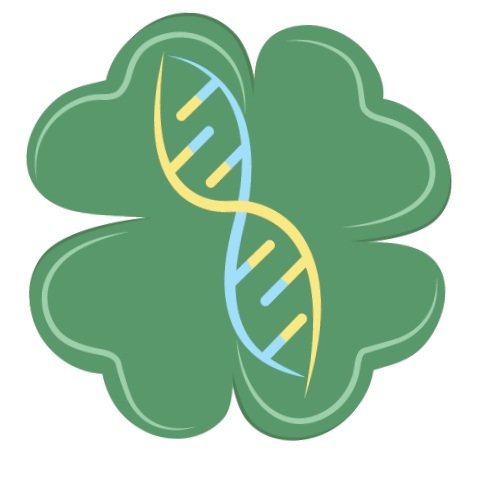This page was written by Manaswini Krishnakumar in collaboration with Jessie Chen, Orin Whitby, and Rachel Baer MSc with review by Andy McCarty, MS, CGC
Infertility: Overview of Causes, Treatment, and Genetic Counseling Options
Infertility is a common condition that has a variety of different causes as well as a variety of different treatments based on the nature of the patient’s concern. Assisted Reproductive Technology (ART) is one of the most common treatments for infertility. The course of action to address each person or couple’s cause of infertility is determined by fertility specialists based on the specific circumstances.
What is Infertility?
Infertility prevents the conception of a child or the ability to carry a pregnancy to term. The duration of unprotected intercourse with failure to conceive is 12 months before an infertility evaluation is undertaken, unless medical history, age, or physical findings dictate earlier evaluation and treatment(3).
10% of those assigned female at birth (AFAB) Struggle with Infertility
What are some causes of infertility in cis-gendered women?
Problems with Ovulation: Ovulation is the process in which the female reproductive organs called ovaries, release the reproductive cells required for pregnancy; eggs. Health conditions and many other reasons can cause the irregular release of eggs. Without the release of an egg to be fertilized by sperm cells, there is no natural pregnancy.
Problems with the Fallopian Tubes: Fallopian tubes play a crucial role in enabling sperm to reach the eggs while also transporting fertilized eggs to the uterus. If there is any blockage in the fallopian tube, these processes would be hindered and hence the probability of infertility will increase.
Problems with the Uterus: This includes polyps, tumors, fibroids, septum, or adhesions inside the cavity of the uterus. Polyps and fibroids arise during a person’s lifetime, whereas other barriers to becoming pregnant, like having a uterine septum (septate uterus), are anatomical differences present at birth. In these instances, infertility is caused by blockages or the inability of fertilized eggs to implant in the lining of the uterus.
Endometriosis: Endometrial tissue outside of the uterine cavity is referred to as endometriosis. Identification of endometrial glands or stroma outside the uterus serves as the basis for the diagnosis. 40 - 50% of individuals affected with endometriosis will also experience infertility(2).
What are some causes of infertility in cis-gendered men?
Testicular or ejaculation function disruption: Tumor or trauma to the testes might lead to reduced male reproductive cells, or sperm count, reduced motility, or abnormal sperm morphology (shape).
Hormonal imbalances: The hypothalamus and pituitary glands produce hormones that regulate testicular function. Various conditions that affect these structures may damage them and change their hormone production. This can result in little or no sperm production.
Genetic conditions: Several genetic conditions like Y-chromosome microdeletion, Klinefelter syndrome, myotonic dystrophy, etc., can lead to a low sperm count or no sperm production.
Lifestyle or Medical Treatments: Certain drugs, both prescription and recreational, can also contribute to infertility. Diet and exercise can also impact sperm health.
Idiopathic Male Infertility: In some cases, reduced sperm production or motility, or abnormal sperm morphology can occur without a clearly identifiable environmental or medical cause(4).
How Can Genetic Counseling Provide Support to those Concerned about Infertility?
A Genetic counselor will review your or your partner's family history and any other risk factors. This will help in determining if genetic testing is recommended. If genetic testing is recommended, the counselor will help you understand the purpose, implications, advantages, and disadvantages of genetic testing. A genetic counselor will provide you with emotional support so that you can make an informed decision about genetic testing.
After any genetic testing, the genetic counselor will follow up during an appointment to discuss and interpret the genetic testing report in a way you can understand and to correlate them with your medical information to assist you in identifying the best plan.
Genetic counselors will also help you understand how your genetic test results may be significant to your family members and work with your physician or reproductive consultants to help them understand the implications of your testing.
How is Infertility Treated?
There are many different approaches to addressing infertility, but it is important to first get to the root cause. Assisted Reproductive Technology (ART) is a common treatment approach, but may not be applicable to all couples and circumstances. This is another way that thorough provider evaluation can combine with genetic counseling to help guide care plans.
Learn more about ART and IVF and what genetic counseling can do to assist here.
The National Fertility Association is a great resource for those seeking more information on infertility: RESOLVE - The National Infertility Association
Citations:
Harris ID, Fronczak C, Roth L, Meacham RB. Fertility and the aging male. Rev Urol. 2011;13(4):e184-90. PMID: 22232567; PMCID: PMC3253726.
Walker MH, Tobler KJ. Female Infertility. [Updated 2022 May 26]. In: StatPearls [Internet]. Treasure Island (FL): StatPearls Publishing; 2022 Jan-. Available from: https://www.ncbi.nlm.nih.gov/books/NBK556033/
Carson SA, Kallen AN. Diagnosis and Management of Infertility: A Review. JAMA. 2021 Jul 6;326(1):65-76. doi: 10.1001/jama.2021.4788. PMID: 34228062; PMCID: PMC9302705.
Leslie SW, Soon-Sutton TL, Khan MAB. Male Infertility. [Updated 2022 Nov 28]. In: StatPearls [Internet]. Treasure Island (FL): StatPearls Publishing; 2022 Jan-. Available from: https://www.ncbi.nlm.nih.gov/books/NBK562258/
Jain M, Singh M. Assisted Reproductive Technology (ART) Techniques. [Updated 2022 Nov 28]. In: StatPearls [Internet]. Treasure Island (FL): StatPearls Publishing; 2022 Jan-. Available from: https://www.ncbi.nlm.nih.gov/books/NBK576409/
Tolu Oyelowo,Chapter 21 - Infertility,Editor(s): Tolu Oyelowo,Mosby's Guide to Women's Health,Mosby,2007,Pages138-146,ISBN9780323046015,https://doi.org/10.1016/B978-032304601-5.50022-8.(https://www.sciencedirect.com/science/article/pii/B9780323046015500228)
Ovulation Induction and Intrauterine Insemination. Yale Medicine. 2023. https://ym.care/pqm
